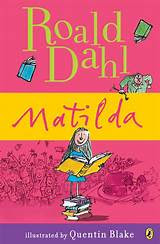"The Absence of Appetite" in Religion
Looking out my bedroom window and seeing the various daffodils in bloom across the usually drab Danebury Estate reminds me that Spring is upon us, and for many of us this means the indulging of copious amounts of chocolate at the beginning of April for Easter (which, in my opinion, could not come soon enough!).
For others however, specifically practising Christians, this currently means an inevitable time of forty days of sacrifice beforehand, the giving up of meats, fish or even fatty foods for Lent.
Christianity is not alone in "The Absence of Appetite" and this voluntary giving up of certain foods. Sharman Apt Russell writes in Hunger: An Unnatural History that
“Hinduism
highlights the physical benefits of fasting, believing that it rests the
digestive system, clears the body of toxins, and leads to greater health” (Russell 42). Moreover, Russell states that Muslims "acknowledge food as a gift from God" (ibid), their decision to Fast from sunrise to sunset during the month of Ramadan is thus important in Islam as they are not only practicing their faith but also obeying Allah's injunction.
Ultimately, this time of sacrifice and self-control over food is rewarding and, for the most part, largely positive for those who are religious. Varadaraja V Raman states in "Food: Its Many Aspects in Science, Religion, and Culture" that "fasting brings about an inner transformation for the better" (Raman 969), an appreciation for a necessity which many people unfortunately do not have.
On the other hand, not eating can also bring out the worst in people, thus dismissing the positive notions Religion supposedly imposes on a persons life, a idea that Raman acknowledges when he states that "Starvation stifles our capacity for love and brings out the worst in human behaviour. Continued hunger blinds us to the message of religions" (967).
Whilst I acknowledge Fasting for Lent and Fasting during Ramadan is no way comparable to starvation, it can similarly bring out the worst in people, a belief which I have decided to evidence in a few tweets I have found by Twitter users from around the world, complaining and seemingly hating this time on abstinence in their faith.
 |
| Figure 2 |
From the Twitter user questioning whether she will actually survive Lent in Figure 1 to the user sarcastically recounting the intense hunger they experienced from the previous Ramadan in Figure 4, these Tweets, although intended in a light-hearted manner for the most part, prescribe a hardship in giving up a necessity in life, that being food and the eating of it. These tweets ultimately help support my claim that "The Absence of Appetite" is largely negative, that the decision to not eat can evidently bring about feelings of pain, anger, frustration, sadness, and most significantly, hunger.
These complaints thus raise the question of whether these age old traditions, particularly Fasting within the Islamic religion as the absence of food and also water covers a long period of time in an individuals life, are simply outdated, as they do not take into account the life's of a busy, professional person who need a healthy diet to perform and function properly at work and in general day-to-day life.
If religion and its connotations with food are bringing about more struggle than joy then why do we continue to give up chocolate for Lent and sacrifice food and water all day during Ramadan? As a non-practicing "Christian" who feels no connection to her religion this is a question I found myself consistently asking whilst undertaking research for this particular blog post.
Ultimately, I believe these acts of not eating are done so the person feels connection to their God, rather than to benefit them nutritionally, and as a result I am dubious in agreeing with the initial quote from Russell for this reason.
After all, "Food is an enjoyable necessity of life" (Raman 959).
...And on that note, how many days left till Easter?





I really like the direction you're taking your theme in, looking at the different ways the absence of food manifests itself. You've raised an interesting line of questioning about pleasure vs pain in religious observance. Would you say that maybe the suffering is part of the absence/fast? I know at least in Islam that the deliberate absence of water as well as food is to some degree supposed to simulate how the less fortunate feel with their lack of access to basic sustenance.
ReplyDeleteHi Hasnah! Thanks for your comment and I'm glad you are liking my theme so far! :) I'd say yes definitely, suffering is part of the absence/fast - although I don't think this is as strong a part in the Christian faith compared to the Islamic religion
Delete